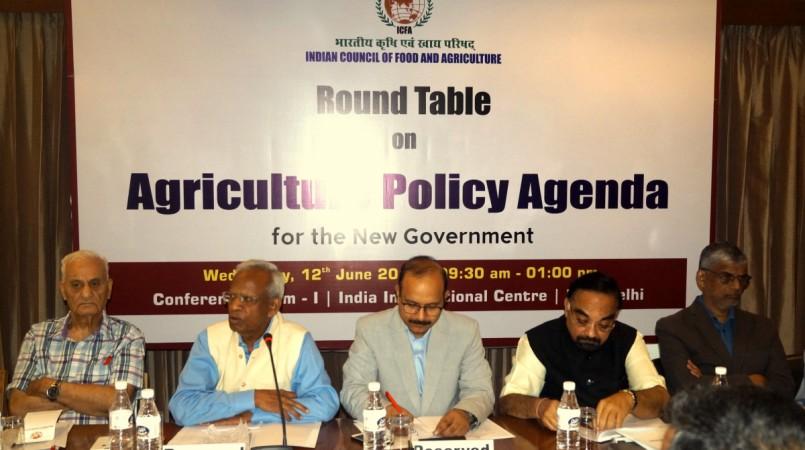
Ahead of the first budget by the new government, a multi-stakeholder consultation meeting was organised by Indian Council of Food and Agriculture (ICFA) to deliberate upon the various issues of agriculture and allied sector.
Welcoming the dignitaries to the National Round Table on Agriculture Policy Agenda, ICFA Chairman Dr MJ Khan appreciated the new Government's attempt to create a separate Ministry of Animal Husbandry, Dairying, and Fisheries. Farmers in this segment would profit with the government's focus and advantages from this initiative.
Bigwigs from the food and agriculture sector came together with an aim to chart out actionable policy agenda and came to the conclusion that farmers prosperity should be on top of the new government at the Centre.
Growth, sustainability, and farmers income was the prime focus in the consultation meeting. Power of policies is huge and needs to be leveraged upon to unleash the growth potential of the food and agriculture sector as well as empowering the farms and farmers.
Agriculture forms a strong pillar of the Indian economy as more than 50% population draws their livelihood from it. India has made rapid strides in agriculture in the last five decades; it has advanced from a nation of food scarcity to surplus. Moreover, it has also emerged as the largest exporter of various commodities in the world.
Speaking on broad agriculture challenges, Dr RB Singh, President Emeritus, National Academy of Agricultural Sciences (NAAS), stated: "Youth needs to be motivated to join the education and profession in the field of agriculture. Agriculture must grow at the rate of 4 per cent of GDP and it must be given the highest priority in the service of mankind." The government should look into giving high priority to agriculture-based start-ups and entrepreneurship development, Dr Singh added.
In India, agriculture is controlled by a plethora of rules and regulations. And being a State subject, the sector lacks uniformity in policies across the country. The farm sector is vital for the economy and yet continues to receive the lowest priority in national economic planning and policies.
Dr KL Chadha, President, Horticulture Society of India, voiced: "We cannot remain conventional in agriculture. We need to change and evolve. Implementation of various programs and policies needs a course correction."
As the new government is expected to take forward agricultural reforms, a concrete agenda will support it to address various governance and development concerns of the agriculture and agri-business sector. Among the esteem stakeholders, the following touched upon different aspects of policy requirements:
RD Kapoor, Head Agri Support and Alliances, PI Industries Ltd., believed that it is not that the industry is not taking any initiative for farmers' welfare. The industry is building its own way to reach out to farmers. Most of the industries are helping farmers through different CSR initiatives and the same need to be extended to remote areas. The government should take steps to ensure this.
TR Kesavan, President of Tractor and Mechanization Association (TMA) alleged that the Government must bring precision in agriculture so that input cost may be reduced
Yudhvir Singh, General Secretary, Bhartiya Kisan Union (BKU), speaking on behalf of farmers enunciated, "For improving farmer's condition, we need to talk about elimination of root causes to ensure assured income for sustainable and prosperity of the farming community ."

















